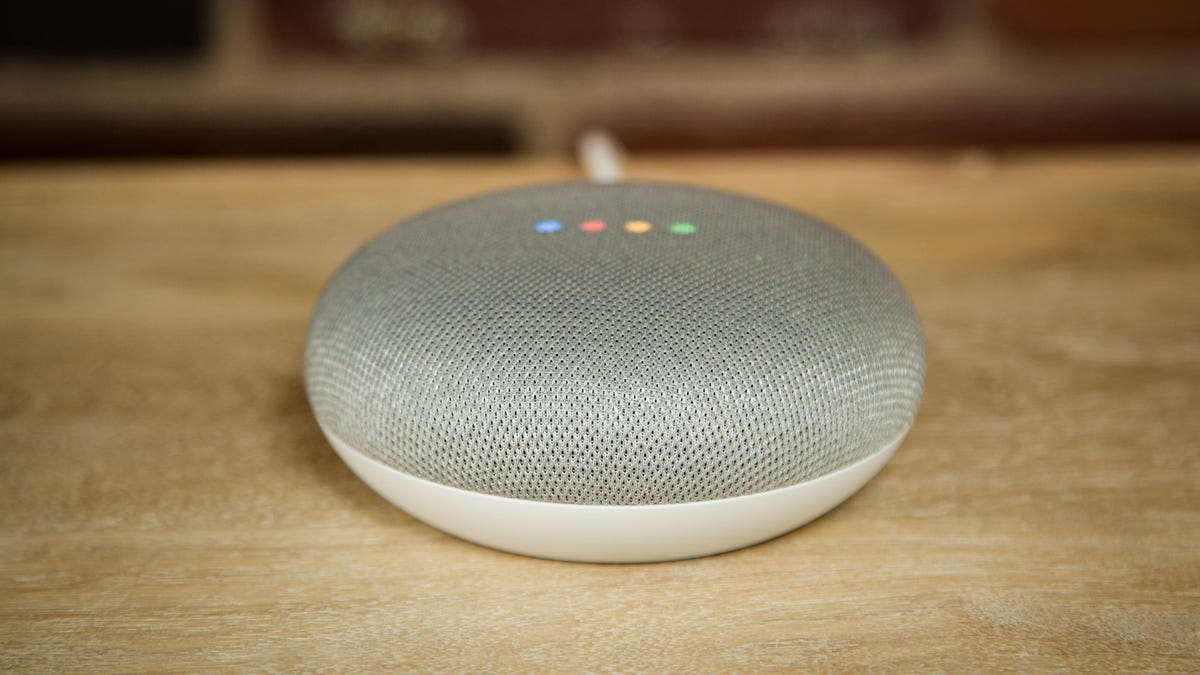Convert your Google Home into a free TV speaker -- here's how
Don't spend money on a new soundbar or speaker system when you can use devices you already own.

One or more Nest Minis on your media console can give your TV audio the extra oomph it needs.
One of the biggest selling points of the Google Home line of smart speakers is that they simply sound so good. Even the diminutive Nest Mini has a distinct thump in the bass range that brings out the groove in your favorite tunes. But then there's a device in your home that's notorious for having second-rate speakers -- your TV. Fortunately, your Google Home speakers are probably compatible with your smart TV, and in just a few simple steps you can set up your TV audio to play through Google Home.
Plus, since you'll be connecting your TV to Google Home wirelessly, you can actually place your speakers anywhere in the room instead of just up next to the TV. You can put a speaker on the end table near the couch where you usually watch TV, for example, if you want to hear dialogue better without having to crank up the volume. Or, you could even pipe your TV's audio to a speaker in another room, like the kitchen or the bathroom, so you don't miss anything when you have to get up.
Here's what you need to know to connect Google Home to your TV, including how to pair up two or more speakers for the ultimate stereo experience.
Connect a Google Home Max for the ultimate TV audio experience.
Connect to your TV with Bluetooth
If your TV has Bluetooth (and most smart TVs these days do), you should have no problem connecting it to a Google Home speaker. First, navigate to the Bluetooth settings in the Settings menu on your TV. From there, tell your Google Home, "Hey, Google , pair Bluetooth" to put your speaker into pairing mode and select the Google Home device you want to connect to.
Double the fun by pairing up speakers
If you have two of the same kind of speakers -- say, two Google Home Minis or two Nest Minis (but not one of each) -- you can listen to TV audio as it was meant to be heard: in stereo. To do that, first you have to create a stereo pair in the Google Home app by assigning one speaker to the left audio channel and a separate speaker to the right.
1. Open the Google Home app on your phone or tablet and tap on one of the two speaker icons you want to pair.
2. Tap the settings icon (the gear symbol) in the upper-right corner.
3. Scroll down to Device settings and tap Speaker pair.
4. Choose the second device icon for your speaker pair and tap Next.
5. The first device you selected will start blinking -- in the app, select whether the blinking device should be used as the right or left channel (it doesn't matter which) and tap Next. The other speaker will automatically become the opposite channel you choose.
6. Name your new pair something (like "Google Home Speaker Pair") and tap Next.
7. Choose which home and room the speakers belong in, for example "Home" might be the name of your home and "Living room" may be the room where you're putting the speakers.
The pair will now show up as a single speaker on your Google Home app and to other Bluetooth devices, so look for the pair when you connect your TV as detailed below. Note also that only the left speaker will listen for "Hey, Google" or "OK, Google" commands, as the right speaker's microphone will be muted.
If you've got a bunch of Google Home or Google Nest smart speakers, consider creating a whole-home audio system.
Think it would be cool to hear your TV show or movie throughout your entire house? Learn how to set up a whole-home audio system here. It's also fun to play music everywhere at once, but be sure to set up your music services the right way first. While you're in your Google Home settings, we recommend you turn off these five features.

